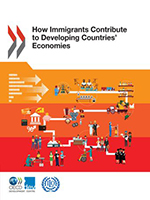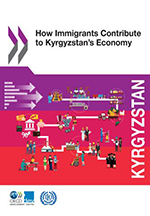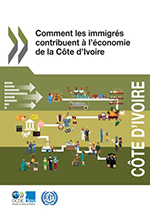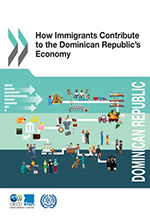Migration
Assessing the Economic Contribution of Labour Migration in Developing Countries as Countries of Destination (ECLM)
 |
|
Developing countries are home to the majority of the world’s migrants. In many of them, labour migration represents a large share of the workforce in key economic sectors. Is it good or bad for their development? While remittances, brain circulation, and the role of diasporas have been the subjects of much research and debate in the wake of the 2006 UN High-level Dialogue on Migration and Development, the actual impacts of migration in developing countries as destination countries have long remained poorly documented. In 2014, therefore, the OECD Development Centre and the International Labour Organization, with support from the European Union, undertook the ECLM project in close collaboration with the governments and researchers of ten partner countries. The results displayed on this page provide a picture of how immigration affects low- and middle-income economies, based on reliable, comparable evidence. They are aimed to help policymakers design better labour and migration policies, improve labour management and secure the appropriate protection of migrant rights. |
| Comparative report |
|
 |
The report How Immigrants Contribute to Developing Countries' Economies brings together the results of the ten country case studies. It finds that labour migration has a relatively limited impact in terms of native-born workers’ labour market outcomes, economic growth and public finance. Perceptions of negative effects of immigrants are unjustified. But most countries of destination could do more with the human capital and expertise that immigrants bring. Public policies can play a key role in enhancing the contribution of immigrants to their host countries’ development. |
|
Country studies |
Other resources
- About the work on Migration and Development
- Publications and papers on Migration and Development
- Latest documents on migration
- Latest blog posts on Migration
Related Documents








